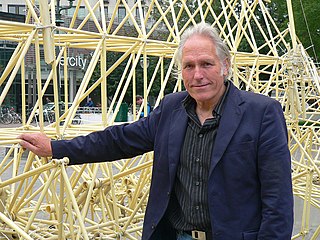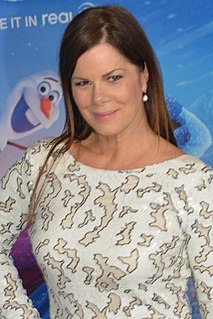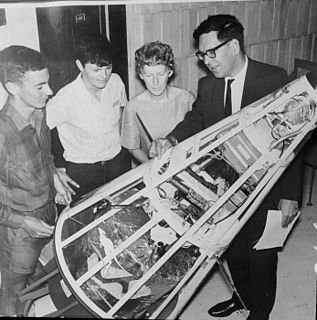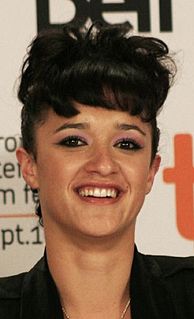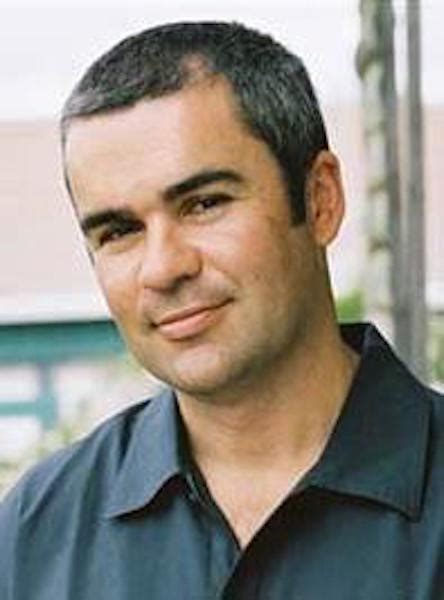A Quote by Theo Jansen
I liked science very much. A science teacher in high school inspired me, and because of him, I began studying science at the university. But when I got there... well, the subject still attracted me a lot, but I had to do all these exams, and it was just like working in an office. I couldn't stand that.
Related Quotes
My parents didn't know much science; in fact, they didn't know science at all. But they could recognize a science book when they saw it, and they spent a lot of time at bookstores, combing the remainder tables for science books to buy for me. I had one of the biggest libraries of any kid in school, built on books that cost 50 cents or a dollar.
I think evolution should be taught as an accepted principle. I say that also as the daughter of a school teacher, a science teacher, who has instilled in me a respect for science. I think it should be taught in our schools. I won't ever deny that I see the hand of God in this beautiful creation that is earth. But - that is not a part of state policy or a local curriculum in a school district. Science should be taught in science class.
I was accepted to Colorado State University in Fort Collins, which is a terrific Aggie school, and they had a great forestry program. But when I saw the syllabus and realized what I was going to actually have to be studying, there was a lot of science! If you want a degree in forestry, it's basically a science degree. And I just thought, "No, no, no, wait a second. Never mind!"
I can think of very few science books I've read that I've called useful. What they've been is wonderful. They've actually made me feel that the world around me is a much fuller, much more wonderful, much more awesome place than I ever realized it was. That has been, for me, the wonder of science. That's why science fiction retains its compelling fascination for people. That's why the move of science fiction into biology is so intriguing. I think that science has got a wonderful story to tell.
I didn't study science beyond high school level, but I'd been reading a lot of science books by people like Richard Dawkins, Matt Ridley and Daniel Dennett. I also spent a year working on a fellowship in a research centre - the Allan Wilson Centre - where I got a hands-on look at their work sequencing DNA.
Science and vision are not opposites or even at odds. They need each other. I sometimes hear other startup folks say something along the lines of: 'If entrepreneurship was a science, then anyone could do it.' I'd like to point out that even science is a science, and still very few people can do it, let alone do it well.
